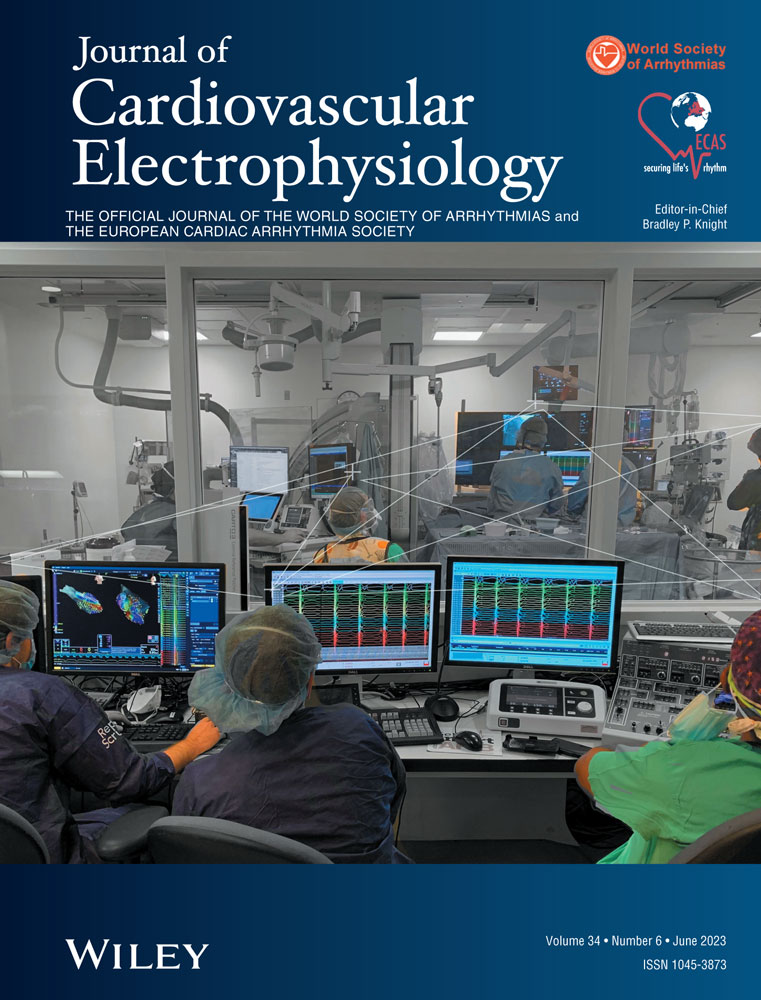Colchicine usage for prevention of post atrial fibrillation ablation pericarditis in patients undergoing high-power short-duration ablation
Disclosures: None.
Abstract
Introduction
Radiofrequency ablation (RFA) for atrial fibrillation (AF) has been associated with variable incidence (0.88%–10%) of pericarditis manifested as chest pain, possibly more prevalent with the advent of high-power short-duration (HPSD) ablation. This has led to the widespread use of colchicine in preventative protocols for postablation pericarditis. However, the efficacy of preventative colchicine has not been validated yet.
Objective
To evaluate the efficacy of a routine postoperative colchicine regimen (0.6 mg twice a day for 14 days post-AF ablation) for prevention of postablation pericarditis in patients undergoing HPSD ablation.
Method
We retrospectively evaluated consecutive single-operator HPSD AF ablation procedures at our institution from June 2019 to July 2022. A colchicine protocol was introduced in June 2021 for the prevention of postablation pericarditis. All ablations were performed with 50 watts. Patients were divided into colchicine and noncolchicine groups. We recorded incidence of postablation chest pain, emergency room (ER) visit for chest pain, pericardial effusion, pericardiocentesis, any ER visit, hospitalization, AF recurrence, and cardioversion for AF within the first 30 days following ablation. We also recorded colchicine-related side effects and medication compliance.
Results
Two hundred and ninety-four consecutive HPSD AF ablation patients were screened for the study. After implementing the prespecified exclusion criteria, a total of 205 patients were included in the final analysis, yielding 101 patients in the colchicine group and 104 patients in the noncolchicine group. Both groups were well-matched for demographic and procedural parameters. There was no significant difference in postablation chest pain (9.9% vs. 8.6%, p = .7), pericardial effusion (2.9% vs. 0.9%, p = .1), ER visits (11.9% vs. 12.5%, p = .2), 30-day hospitalization for AF recurrence (0.9% vs. 0.96%, p = .3), and 30-day need for cardioversion for AF (3.9% vs. 5.7%, p = .2). Fifteen (15) patients had severe colchicine-related diarrhea, out of which 12 discontinued it prematurely. There were no major procedural complications in either group.
Conclusion
In this single-operator retrospective analysis, prophylactic colchicine was not associated with significant reduction in the incidence of postablation chest pain, pericarditis, 30 day hospitalization, ER visits, or AF recurrence or need of cardioversion within first 30 days after HPSD ablation for AF. However, its usage was associated with significant diarrhea. This study concludes no additional advantage of prophylactic use of colchicine after HPSD AF ablation.
Open Research
DATA AVAILABILITY STATEMENT
The data that support the findings of this study are available on request from the corresponding author. The data are not publicly available due to privacy or ethical restrictions.




